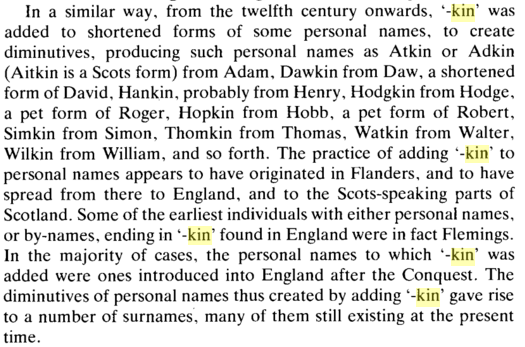The word "honeykins" uses two suffixes to make it more endearing: "-kin" and "-s".
-kin is an English suffix that was used in the olden days to form diminutive forms of nouns. There are still several dozen words in the language that were formed using this suffix. The more known are pumpkin, catkin, napkin, the less known are ladykin, pannikin.
It has a curious etymology, let me quote from Wiktionary:
See - it's Germanic in origin: compare with German "Mädchen", "a girl". It is composed of the root "Madg""Magd"/"Maid", "female servant", and the diminutive suffix "-chen".
Another interesting bit, from "A History of British Surnames" by Richard McKinley, page 100:
It turns out Richard Dawkins has this suffix too! Live and learn.
The linguistic term for a diminutive, endearing calling name is hypocorism (Wikipedia):
A hypocorism (/haɪˈpɒkərɪzəm/; from Greek ὑποκορίζεσθαι hypokorizesthai, "to use child-talk"), also known as a pet name or calling name, is a shorter or diminutive form of a word or given name, for example, when used in more intimate situations as a nickname or term of endearment. However, shortening of names is certainly not exclusive to terms of affection; indeed, in many cases, a shortened name can also be used to intimidate or humiliate. The ambiguity would need to be clarified by context.
According to Wiktionary, the suffix -s has 5 meanings, and one of them is hypocoristic:
Diminutive suffix:
Babs; moms; pops; homes; Toots
It is considered to be a shortened form of the hypocoristic diminutive suffix -sy.
In the "Cambridge Grammar of the English Language" by Huddleston and Pullum, both "-kin" and "-s" are mentioned briefly in Unit 5.2.1 "Evaluative morphology: Diminutives":
The suffix -s also occurs after diminutive -ie in such playground words as onesies, twosies, widesies: it is doubtful whether it is here marking plural number. In addition it is found in various terms of address, such as ducks or Pops.


